 |
Organic Society
The Healthy Rise of the Bourgeoisie
Plinio Corrêa de Oliveira
After the Ancien Regime, a new type of bourgeoisie surfaced in many places, distinct from the commercial and small industrial bourgeoisie that existed earlier. A social class of intellectuals started to appear, with a role corresponding to its scholarly pursuits. Rigorous study was demanded, entailing such great discipline and effort that, even without the aura of military glory, those who came to comprise this class had a merit far beyond that of the commercial and industrial bourgeoisie.
For example, a professor who came up with a brilliant theological argument that could resolve a complicated religious question inside his country would play a special role in the direction of the res publica [commonwealth]. A country’s path came to be influenced not only by military and feudal nobles, but also by intellectuals who, in different ways, gave new directions to society. To do this the intellectual had to make a great effort and reveal a superior spirit which transcended that of the normal bourgeois, turned only to his own commercial profit.
This role constituted a new form of influence and direction exerted more over the society than the State. It gave the intellectual a social responsibility which, from a certain perspective, touches on that of the nobility.
The noblesse de robe in France
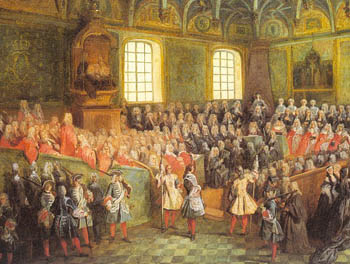
The members of the Parlement of Paris wore red mantles |
After the Middle Ages and throughout the Ancien Regime, the judges and administrators in France constituted a class called the noblesse de robe, or nobility of the gown, in reference to the black mantles the judges wore.
The members of the Paris Parliament, which played an important role in many episodes of French History, were also members of the noblesse de robe and had the privilege of wearing red mantles. They were not on the same level as the noblesse d’epée [nobility of the sword] because the latter implied the duty to shed one’s blood for one’s country, but they received public recognition for their intellectual, political and moral merits.
The intellectual nobility in Portugal
In Spain and Portugal a noble class of professors started to rise. It did not include every professor, but rather those masters whose academic pursuits and fame had reached very expressive levels. They became a kind of small nobility.
In Portugal, when an individual graduated from Coimbra University, he would not receive a hereditary title, but a transient one, granted for the personal merits of the recipient. When members of a family graduated from Coimbra without interruption for three or four generations, the title would become hereditary. This is understandable because, through the course of four generations, a family of academics would have acquired a certain way of being that would give it an elite status in society.
If this organic process had continued, Spain and Portugal would have had a new class of intellectuals and artists that would have exerted a stable influence over society.
The land nobility in Brazil
Brazil saw a similar situation with the nobreza da terra [nobility of the land], which was the class of planters. Until the 1930s, commerce had relatively little importance in Brazil. What counted was the class of planters, whose members often had houses in the nearby towns where their families resided. In principle, the profession of cultivating the land belongs to the noble, who exercises his lordship over a large expanse of land. Although it is not a privilege of the nobility, it is appropriate to the noble, since his dominium over a territory participates on a small scale in that of the king.
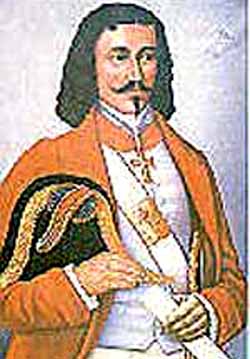
Brazilian André de Negreiros, a sugar planter, led the victorious war that expelled the Protestants from Brazil in 1654. He received a decoration from the King, not a title of nobility. |
I believe that one factor which prevented the land nobility from properly developing was that this class was not recognized by Portugal when Brazil was its colony (1500-1808) or part of its Kingdom (1808-1822). The Portuguese nobility did not even accept it after Brazil became an Empire, separate from Portugal (1822-1889), with an Emperor who was the Portuguese heir to the throne of Portugal. This policy can be both defended and disputed.
How did this policy originate? Portugal did not pay much attention to Brazil, perhaps because it had other colonies in India and Africa that demanded more of Lisbon’s attention. Further, since Portugal was a small country, it did not have a large nobility and lacked the capacity to send nobles to all its colonies.
Shortly after Brazil was discovered (1500), it was divided into 15 hereditary counties – capitanias hereditárias – (1532). But only two Portuguese nobles traveled to the country to administer the lands; the other captains remained in Lisbon enjoying court life. The result was that our country – with the potential for a splendid social-political system that could have given it a very stable structure - saw that system fail for the lack of nobles to direct it.
Portugal and Spain should have sent more nobles to Latin America. It did not happen because the strong attraction to be part of Madrid's and Lisbon’s court lives deviated those nobles from their duty. They preferred the pleasures of the court to the hardships of colonial life.
Then, to add to the difficulties, Portugal raised every possible obstacle to keep the rural elites of Brazil from rising to an aristocracy. The few Portuguese nobles who came to our countries became part of the “land nobility,” but they would not admit the local planters to naturally rise and became part of it. One could defend this policy as a measure that intended to encourage the land nobility to become more refined and acquire the qualities and conditions of authentic nobles.
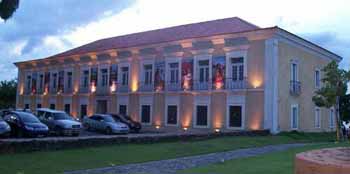
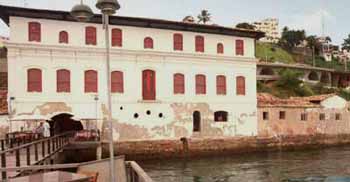

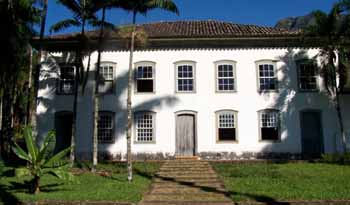
Planters' houses in different States of Brazil, from the top, Pará, Bahia, Rio and São Paulo |
The problem, however, is that even after that class of planters became quite civilized, Portugal never ennobled any Brazilian family. Even after Brazil became an Empire and titles of nobility were granted, those titles were personal, that is, they could not be passed on to new generations; they were not hereditary. I believe that this was a substantial mistake of Portugal. It should have favored the transformation of the organic rural elite into a true nobility. Had it done so, the Portuguese nobility would have been infused with a new blood, a new dynamism to help build an authentic Portuguese commonwealth.
The Portuguese Crown had a phobia against everything that was not the medieval nobility. When it named the first 15 hereditary counties, it avoided giving their administrators the corresponding title of counts. They were called hereditary captains, an army and police rank that does not exist in the nobility. This policy of diminishing the land nobility in Brazil was present from the beginning and became firmly entrenched.
Setting aside this historic mistake, it must be acknowledged that the elites in our towns and cities were organically born from the rural life. Members of these traditional rural elites gradually took part in the government. They were brought to power not by their rights but by popular election after the republic was established in Brazil (1889). At times the regional guilds would elect their representatives to places in the municipal government and council, but generally the planters would be elected because of their importance in the area.
Thus, this class of the planters became very cultivated, refined, and wealthy, and came to exert more and more power in the rural towns, even while they retained their roots in the countryside. Those planters should have been given titles and become a nobility, as France did with its nobility of mantle and Portugal with the families who graduated from Coimbra.

Posted January 25, 2010

  | | Prof. Plinio |
Organic Society was a theme dear to the late Prof. Plinio Corrêa de Oliveira. He addressed this topic on countless occasions during his life - at times in lectures for the formation of his disciples, at times in meetings with friends who gathered to study the social aspects and history of Christendom, at times just in passing.
Atila S. Guimarães selected excerpts of these lectures and conversations from the trancripts of tapes and his own personal notes. He translated and adapted them into articles for the TIA website. In these texts fidelity to the original ideas and words is kept as much as possible.

Related Topics of Interest
 All Classes Should Have Elites All Classes Should Have Elites
 The City and Its Nobility The City and Its Nobility
 An Élan for Perfection Should Exist in All Classes An Élan for Perfection Should Exist in All Classes
 How Man Should Act over His Natural Environment How Man Should Act over His Natural Environment
 Tradition, Stagnation and Progress Tradition, Stagnation and Progress
 The Natural and Unnatural Decline of the Clan The Natural and Unnatural Decline of the Clan
 The True Friends of the People Are Traditionalists The True Friends of the People Are Traditionalists
 Revolution and Counter-Revolution - Overview Revolution and Counter-Revolution - Overview

Related Works of Interest
|
|
Organic Society | Social-Political | Home | Books | CDs | Search | Contact Us | Donate

© 2002-
Tradition in Action, Inc. All Rights Reserved
|
 |
|